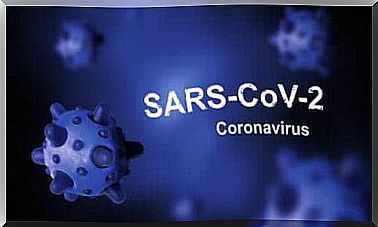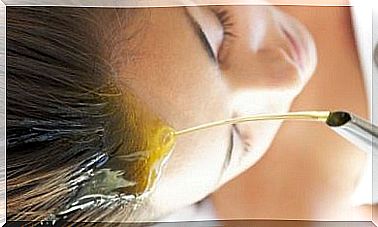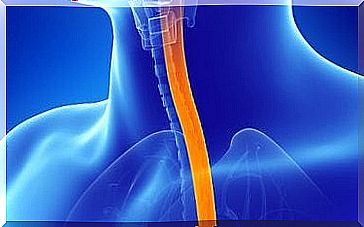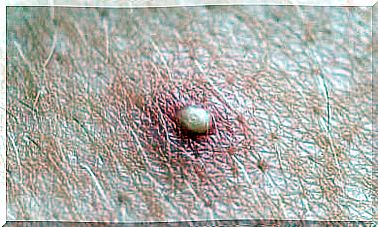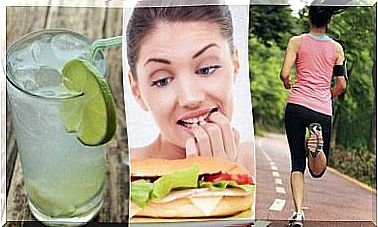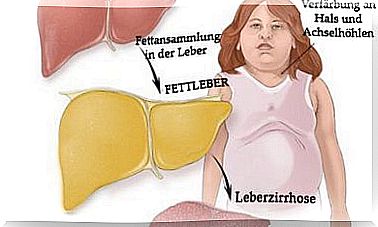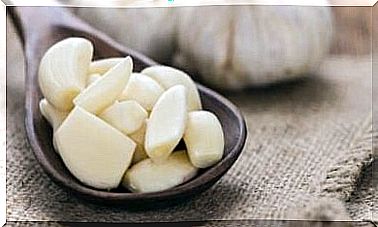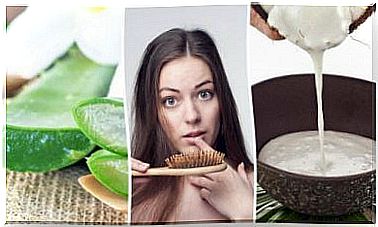Prevent Bad Breath With These 12 Tips
Did you know that you can get bad breath if you don’t drink enough? Therefore, always try to drink at least two liters of water a day.

Your oral hygiene is just as important to your health as it is any other good habit. Sometimes brushing your teeth, rinsing your mouth or chewing a leaf of odor-neutralizing mint is not enough. However, there are other methods you can use to combat bad breath. Prevent bad breath with these 12 tips.
1. Brush your teeth after every meal
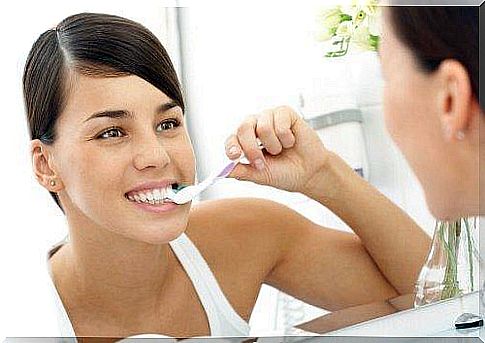
It is important to get rid of leftover food. These mainly settle in the spaces between the teeth. Your toothbrush will also remove the plaque that’s hidden under your gums.
In addition to causing bad breath, the zagny builds up stains that can decalcify your teeth.
2. Prevent bad breath with floss
Sometimes your toothbrush won’t remove all traces of food stuck between your teeth.
This is either because the spaces are too small or your toothbrush cannot reach these areas.
These bits of food stuck between your teeth or on your gums can cause nasty infections like gingivitis.
3. Use tongue brushes
Your tongue picks up a lot of germs because it is exposed to microorganisms every time you open your mouth.
There are toothbrushes with tongue brushes on the back. You can use these to brush your mouth more thoroughly and remove any traces of germs and bacteria that are causing bad breath.
4. Change your toothbrush regularly

Even if you take good care of your toothbrush, it is a direct target for hundreds of bacteria that live in your bathroom.
Oral care specialists therefore recommend changing your toothbrush every two to three months.
It’s also important to replace your toothbrush after a cold or flu, as it can carry infectious bacteria that can cause a relapse.
5. Use alcohol-free mouthwash
Once the taste of mint or citrus fruits disappears, your mouth will dry out and you will get bad breath.
This is because many types of mouthwash contain up to 27% alcohol. They also contain a component called chlorhexidine, which can stain your teeth over time.
6. Don’t drink too much coffee
Prevent bad breath by drinking less coffee. Caffeine slows the production of saliva, which dries out your mouth and can cause bad breath.
If it’s coffee, you can change your drinking habits and drink hot or cold tea instead. Natural tea is the better option.
7. Drink at least two liters of water a day

This fluid is very important for your body. When you drink the right amount of water, this is usually how you stimulate salivation.
This means your mouth won’t be as dry and you are less likely to have bad breath.
8. Don’t take medication that you don’t need
Taking pain relievers, antihistamines, and antidepressants often reduce saliva production.
Your doctor or health care professional should be able to answer any questions and explain to the patient the side effects that can occur from taking certain medications.
9. Tonsil stones
These stones get stuck in the throat. They smell foul because they’re hard deposits of food and bacteria that have lodged in your tonsils.
Tonsil stones look like small white spots or lumps. Prevent bad breath with better oral hygiene: This can also prevent tonsil stones from appearing in the first place.
10. Avoid low carb diets
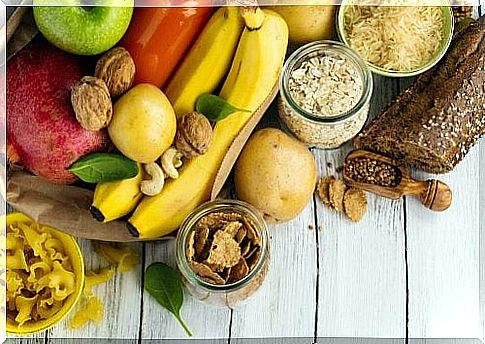
Prevent bad breath through your diet. After a low-carb diet, also known as a low-carb diet, your body develops ketosis.
This is a process that forces your body to burn fats and proteins that are otherwise stored as a source of energy. During this process, the body releases chemicals like ketones that can cause a bad smell.
11. Your weight is a factor
Obesity is a factor that has a stimulating effect on bad breath. Various studies have shown that there is a connection between obesity and bad breath.
12. Avoid peppermints
Mints and chewing gum are high in sugar. When a person eats a piece of candy or chews gum, they may think everything is fine and the bad breath is gone, but the effects don’t last long.
As soon as the effect finally wears off, the sugar and bacteria stick to the tooth surface. If you want fresh breath, try sugar-free peppermints.
